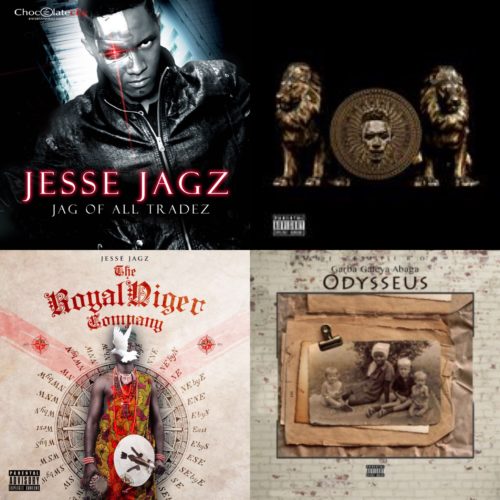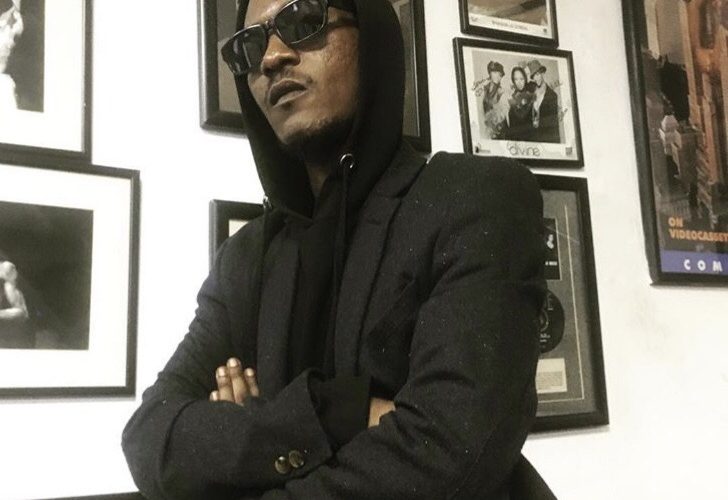They say confidence is sexy, but Nigerians love humble, low-key people. You can toot your own horn, but pressing at it too loudly or incessantly will be perceived as arrogance – a quality that attracts disdain among the masses. It’s why BrymO can catch flak for calling himself the greatest thing to happen to the Nigerian music industry, even though the hyperbolic nature of that statement can be ignored to understand its essence.
You can exude the aura, you can hint at it, but don’t you dare be definite especially when the people haven’t crowned you yet. The rules apply to everyone, well, except you’re rapper, because bragging is accepted as one of the foundational elements of rap music.
In a genre largely driven by machismo, every rapper has songs on which the point is to brazenly declare himself or herself the best. In fact, the essence of many – if not all – outings is to continually prove their mettle. The performances create and constantly update the image that portrays how we gauge the skill level we put them on.
Jesse Jagz calls himself the greatest and his demeanor exudes an unreal confidence that can turn anyone into a believer – even MI calls him the greatest. He’s the emperor of his own nation, the king that composes his own odes. If the original Choc Boyz were the three wise men, Jagz would’ve been the Magi bearing gold because of his ever-royal candor.
The first song that greets your ears upon listening to Jesse’s debut album, Jag Of All Tradez is titled “Takeover.” The song is a bold proclamation, a verdict even before the jury was out. Many rappers spend the first few songs demanding attention, but since Jesse doesn’t have the mindset of many rappers, he simply sidesteps and gets cocky in a bid to command attention immediately. It worked on me.
Prior to his debut album, Jesse had already built his reputation as an excellent producer and artist by working with other artists like Majek Fashek and Dekunle Fuji. Being a part of the original Choc Boi collective – who were building a reputation with his brother, M.I, at its front lines – Jesse benefited from the hype surrounding the crew. There was little doubt as to if the younger Abaga could deliver, he already had the reputation of being a musical polymath.
On the production tip, Tradez delivered on a stellar level, showing off Jesse’s expansive arsenal with a buccaneering edge. Jesse bended and blended at will, to create a musically diverse project. In front of the mic, he easily flaunted his unmatched, buttery flow whether rapping or singing or halfway between both. But where Tradez flounders is on the conceptual level, where about 85 percent feels vacuous thematically.
Displays of lyrical calisthenics and chest pumping is the order a lot of the time, while focus on women and lust also swallow a large amount of its lengthy duration. The only songs with some sort of honest introspection are “Dis Jagged Life” and “My Brother”, both are amongst the dullest songs on the album.

Of the three debut albums by the Choc boiz, Jagz’ Tradez had the least impact in Conner terms but it did spurn some hits, like the infectiously slick and witty “Jargo.” There are murmurs that his label at the time, Chocolate City put pressure on him to blend in pop music in order to pop, but Tradez feels like an album only Jesse could make. During media promo runs in support of Tradez, he gladly described the genre of the album as “hip-pop,” and also, there were no reports nor signs of internal tension then.
Eight years removed from his debut, Jesse has released three projects without surpassing or matching the same commercial impact of Tradez, which can be attributed to his indie status after his exit from Chocolate City. A devoted base of fans has ensured that Jesse continues to have an audience he can deliver music to, all the while keeping his name alive in the hip-hop conversation. His indie albums have continued to showcase high skill level, and have been warmly accepted by critics and fans alike.
However, as acclaimed as the releases have been, there’s no unanimous classic under Jesse’s belt. Part of what helps an album attain the classic status is the seismic activity it causes after it drops. Jesse gets acclaim from a wide but still very niche base, and none of his albums has altered the music landscape nor inspired a slew of copycats. But like as being stated earlier, without a major label machine, chances of commercial impact get slimmer.
As important as numbers can be, skill can never be understated. It’s trite to say Jesse is a very good rapper and an even better producer, his catalog is enough evidence. Where my gripe comes in is the fact that Jesse never goes beyond the usual in his writing. Color me overly critical, but classic albums aren’t just filled with well-executed aesthetics, they give you a personal part of the artist. And being honest at the risk of sounding harsh, Jesse’s catalog is incredibly vapid.

Considering his four albums, I believe Jagz Nation Vol. 2: The Royal Niger Company is Jesse’s best album yet. The production on RNC is the most consistent and cohesive Jesse’s worked with, afrocentric and colorful but still rooted in hip-hop. The overall rapping on the project is his some of his best pen game, kicking metaphors, punchlines and plenty of dope rhymes. But the gag is that RNC seems like it was created to find more ways to extol Jesse’s greatness. While I’m not one to rain anyone’s parade and also noting I still keep RNC is rotation, the overly boastful nature of the project across 11 songs can become cloying.
Many times on RNC, it feels like words are simply being strung together for the purpose of the lyrical aesthetic. In more ways than one, it makes Jesse look like a fiend of making words count rather than making them cut through to affect the listener.
As much as we celebrate the excellent rhyme schemes and entendres our favorite rappers, the true self portrait they imbue into their music is what binds us to them. What often sticks after the music dims is the connection created through their moments of truth and relative introspection.
Jesse hasn’t created room for that spot in his music, choosing to polish his crown rather than share his story or create something affectionate. At various points, RNC carries an esoteric third eye feeling, but it never looks inward for inspiration. For the god on the mic, constantly renewing his claim through the fountain of braggadocio seems to be of utmost importance.
The purpose seemed to have changed after the release of the album art for his latest body of work, Odysseus, which hinted at something more personal. But Odysseus turned out to be another Jesse Jagz album – pristine production, typically vacuous themes with significantly less lyrical mastery. The album art wasn’t just subversive, it was deceptive. And even after adjusting to try and accommodate the album, its average nature left me with a familiar feeling after listening to a new Jesse album: I want more.
I want more from Jesse Jagz besides rhymes about his greatness and his sexual prowess and conquests. Closing off on personal and real topics in favor of constant boasts for the sake of mystical greatness is the Achilles heel in Jesse’s arrogant demeanor.


